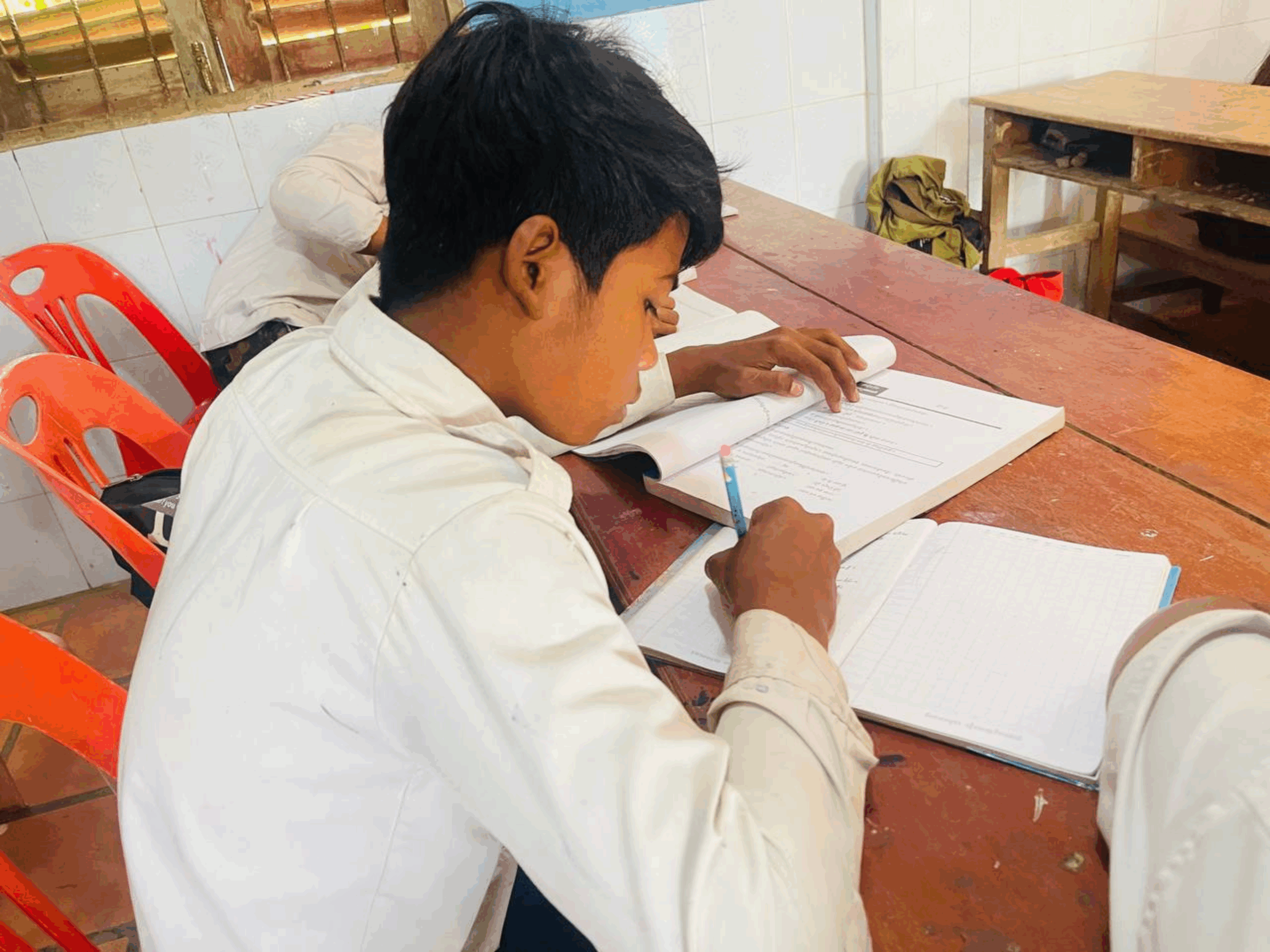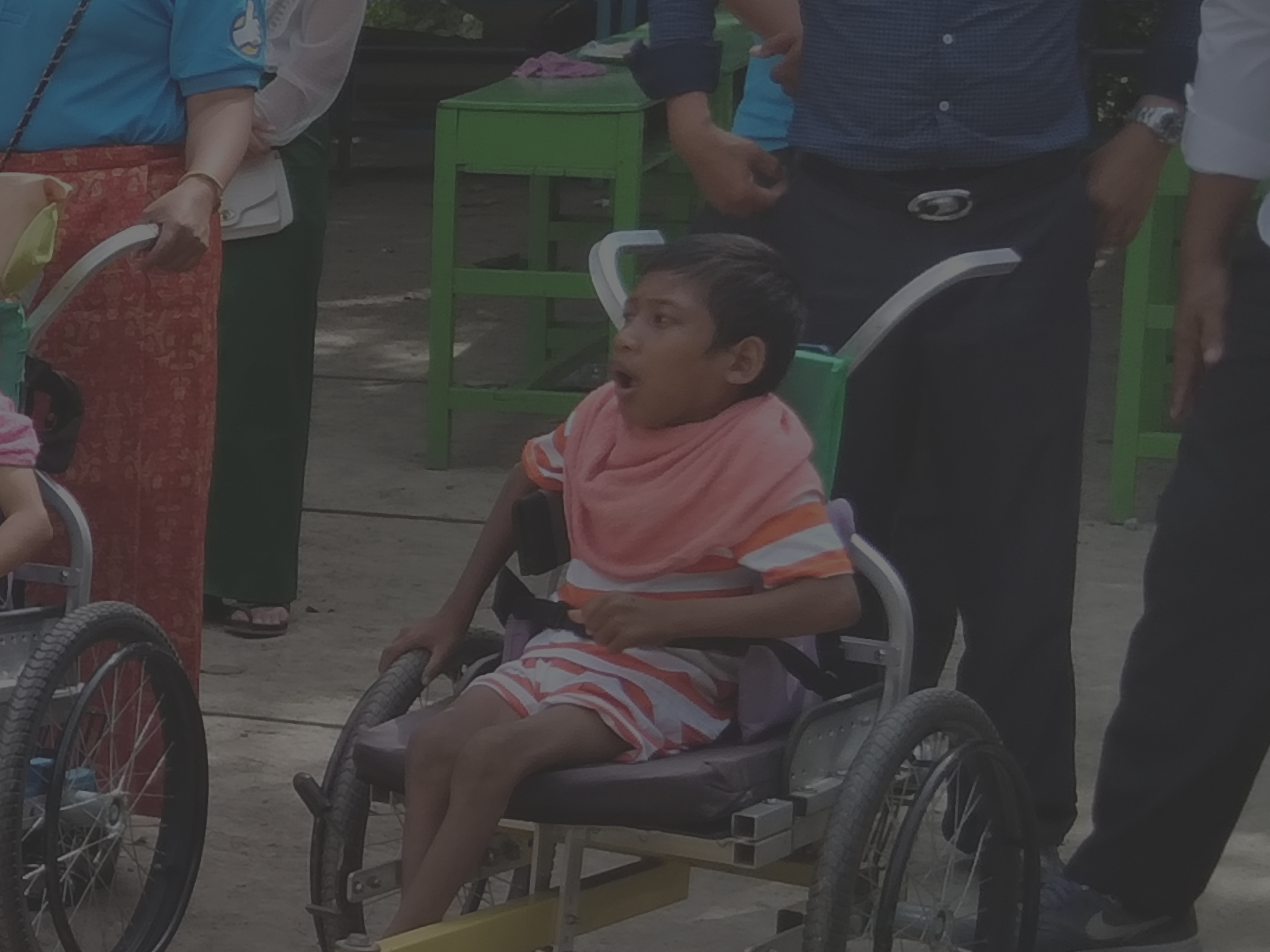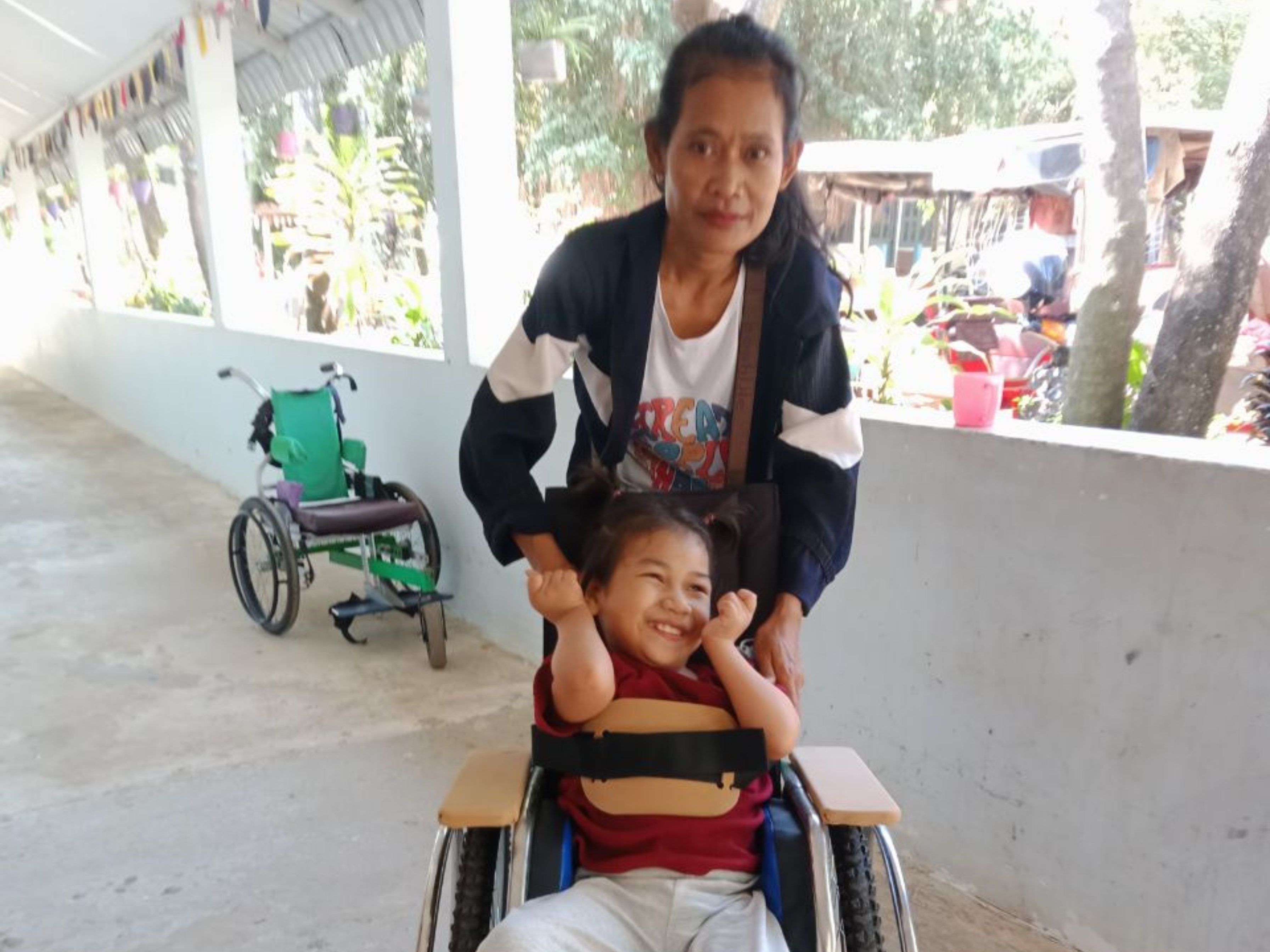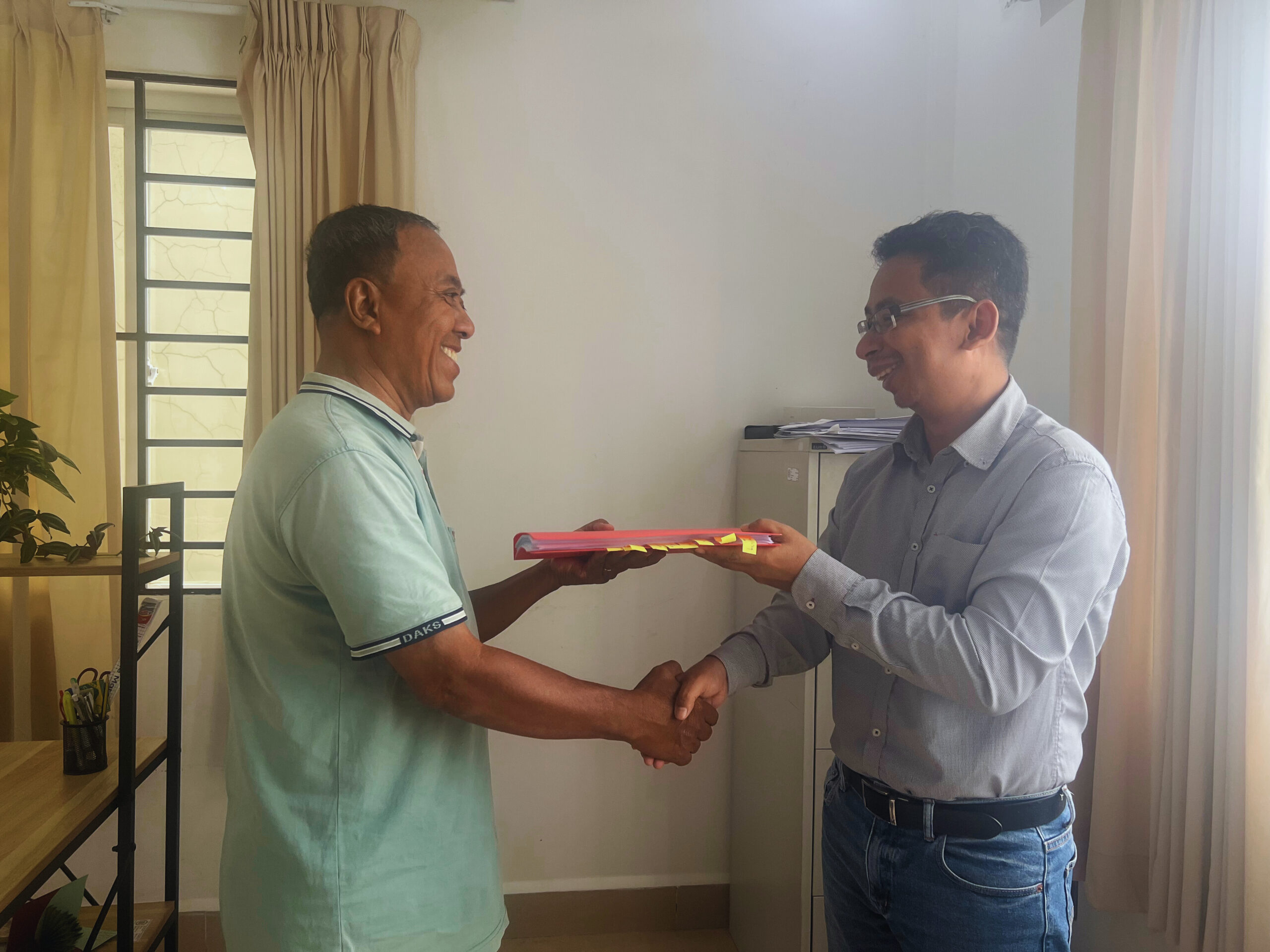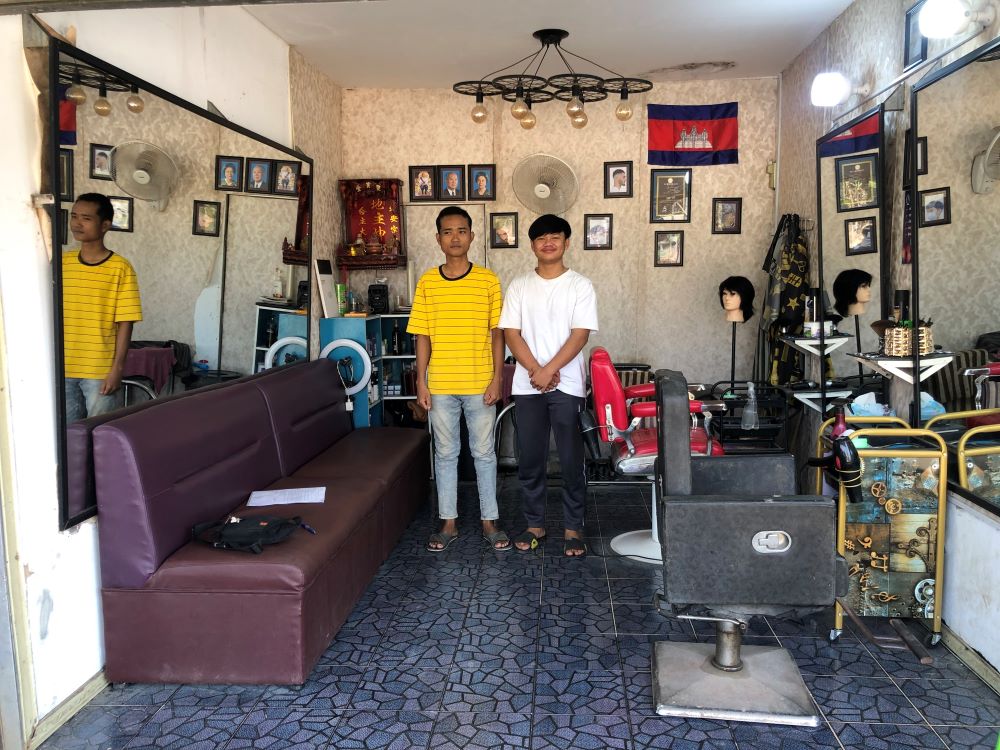In a small, two-chair salon in the heart of Poi Pet, Sameth* is wrapping up a lesson with his apprentice Pisey*. After being connected through the Future’s Office Vocational Training programme, Pisey has been learning the art of barbering from Sameth for a few months. Both men are 21 years old and went to the same school growing up; however, they both were unable to continue their formal academic education due to family economic hardships that forced each one to drop out and earn a daily wage.
Sameth moved to Phnom Penh to learn barbering through a different apprenticeship. Working in a majority female salon, he learned more advanced skills, including layering and colouring. After the apprenticeship concluded, he moved back to Poi Pet to be closer to his family and to set up his own salon on land he owned.
“This shop is the first step,” he says of the salon he built for himself. “In the future, I plan to expand this shop to include more chairs and staff, and then ideally, open more salons around Poi Pet.”
Sameth is a driven entrepreneur and is passionate about his craft. He accepted Pisey as an apprentice because of the two’s history together. “I know his work ethic from growing up,” Sameth says. “I know he works hard and will take time to actually learn the skills I teach.”

Sameth (left) and Pisey (right) are long-time friends participating in the Vocational Training Programme run by Damnok Toek’s Future’s Office.
For Pisey, the opportunity is a dream. “First of all, I love the work,” he says when asked why he chose barbering as his apprenticeship. But more than passion, both men know the value of having a marketable skill that offers employment opportunities throughout Cambodia.
For people like Sameth and Pisey, returning to continue their academic education was not a viable option, as their families relied on them to help contribute to the household income. This is a common situation in Cambodia, especially in areas like Poi Pet, where long-term financial planning is extremely challenging due to the city’s informal and unstable job market. Skilled jobs, such as barbering, are incredibly useful and provide a much more sustainable path for economic mobility when families struggle to afford their basic needs.
Pisey continued his education under Grade 9, earning his secondary school certification. Growing up, his father worked as a taxi driver, and his mother stayed home caring for Pisey and his younger siblings. However, during the COVID-19 pandemic, demand for taxi drivers decreased, and Pisey’s family found themselves in financial turmoil. As the eldest child, Pisey dropped out of school to enter the workforce and help support the family.
He knew of the Damnok Toek Future’s Office from the neighbourhood and decided to enter Vocational Training after hearing positive feedback from peers. The Office offers many employment services, including job skill training and placement, Income-Generating Activities (which consist of training and loans to help adults start small businesses), and Vocational Training. The Future’s Office staff have established connections with businesses in the Poi Pet area, serving as the primary network for job and Vocational Training placements.
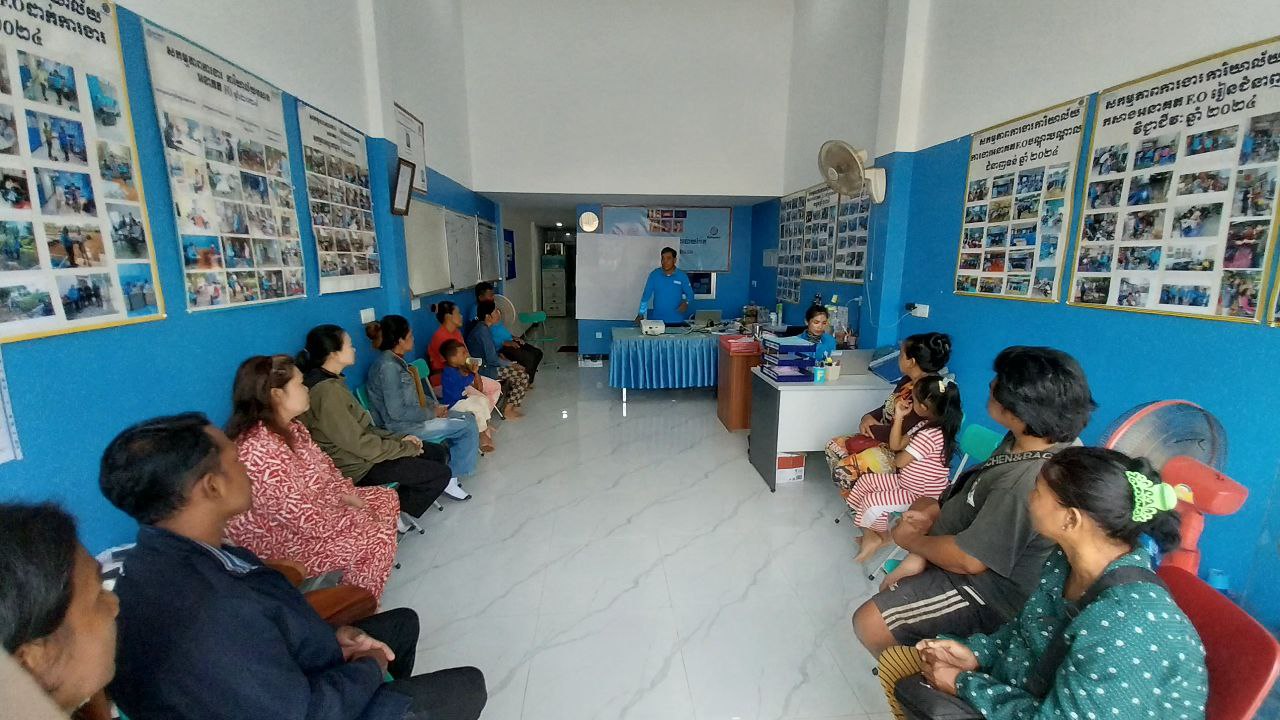
Future’s Office staff host a job skills training workshop for community members at the Future’s Office in Poi Pet.
Job opportunities for low-skilled workers with minimal formal education are limited, with most taking labouring positions, which typically require long, demanding working hours for very low pay. Many labourers migrate to neighbouring Thailand, where the demand for workers and higher wages are high. Although Cambodians can cross the border daily for work, it is quite common for wage earners to move their families to Thailand so they can work longer term. However, this decision often has problematic ramifications, including children and youth dropping out of or falling behind in school or being exposed to labour exploitation.
The services offered at the Damnok Toek Future’s Office are designed to assist families so they do not have to resort to extreme and potentially detrimental measures to support their families. Most beneficiaries of the Future’s Office want to remain in Poi Pet and only choose to migrate as a last resort. Job skills training and placement allow individuals to build skills and work for employers vetted as safe and stable. For younger beneficiaries with little to no work experience, Vocational Training enables them to build skills in stable, profitable professions such as mechanics and barbering.
Ensuring trainers and trainees are adequately supported throughout the apprenticeships is vital to the sustainability and outcome of the Vocational Training project. Trainees receive financial and/or material support to help them through their apprenticeship. For Pisey, this support is in the form of materials, including doll heads, scissors, and hair clips, to help him practice his barbering skills at home.
Trainers also need support as they must dedicate time to teaching their apprentices. Damnok Toek covers the cost of the apprenticeship, paying trainers a monthly fee for taking on students.
For Pisey, the Vocational Training has been game-changing. “My family is very supportive and proud of my work,” Pisey says. “I still need more practice, but I think in maybe one year, I will be able to open my own shop.” He praises Sameth for being a helpful teacher and encouraging him to improve his skills, which he otherwise would have struggled to learn independently.
